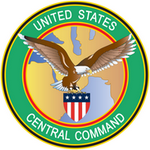KABUL (WaPo) — They were among the Taliban’s most influential commanders — five men whom the United States succeeded in removing from the battlefield.
But on Saturday, they were released from the military prison in Guantanamo Bay, Cuba, in exchange for Army Sgt. Bowe Bergdahl — a deeply controversial decision that raised concerns in Kabul and Washington even as Bergdahl’s homecoming was celebrated.
One of the freed men was the head of the Taliban’s army. Another arranged for al-Qaeda trainers to visit Afghanistan. Another has been implicated by the United Nations for killing thousands of Shiite Muslims.
[...]
If they are permitted to return to Pakistan or Afghanistan, the five former detainees will likely play a crucial role in the Taliban’s next act.
Khirullah Said Wali Khairkhwa, 47, was once the Taliban’s interior minister. He helped create the Taliban movement in 1994. He was a “hard-liner in his support of the Taliban philosophy” and “was known to have close ties to Osama bin Laden,” according to his Guantanamo case file, released by WikiLeaks.
Mullah Mohammad Fazl was a senior commander in the Taliban army in the 1990s, rising to become its chief of staff. He is thought by many to have supervised the killing of thousands of Shiite Muslims near Kabul between 1998 and 2001. According to WikiLeaks documents, he was also present at the 2001 prison riot that killed CIA operative Johnny Micheal Spann, the first U.S. citizen killed in the Afghan war.
Mullah Norullah Noori, another of the detainees, was also present during Spann’s killing. He was a provincial governor in several key areas during the Taliban regime. He is also suspected of involvement in the Shiite massacre.
Abdul Haq Wasiq, 43, was deputy chief of intelligence for the Taliban. According to his Guantanamo case file, he “utilized his office to support al Qaeda” and was “central to the Taliban’s effort to form alliances with other Islamic fundamentalist groups.” His case file, like Khairkhwa’s, calls him a “high risk,” saying that he is likely to “pose a threat to the US, its interests and allies.”
Mohammad Nabi Omari, 46, was a member of a joint al-Qaeda-Taliban cell in eastern Khost province, according to his case file, and “one of the most significant former Taliban leaders detained” at Guantanamo. He has ties to the Haqqani network, the group that was believed to be holding Bergdahl.
Over and over, each detainee received a “recommendation for continued detention” by a military board at Guantanamo. But Bergdahl’s kidnapping — and the prospect of a prisoner swap — meant those recommendations would have to be reassessed.
More...
Sunday, June 1, 2014
Freed prisoners were battle-hardened key Taliban commanders
Freed prisoners were battle-hardened key Taliban commanders
2014-06-01T20:37:00-04:00
Watcher
Subscribe to:
Post Comments (Atom)















